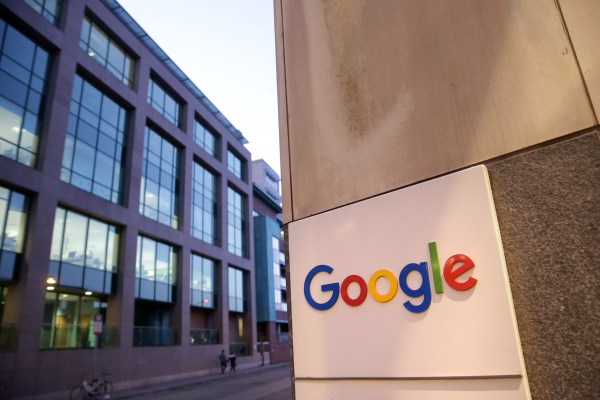Google has rolled out changes to how it displays search results for products in Europe to try to comply with an EU antitrust ruling against its Google Shopping search comparison service.
A multi-year EU antitrust investigation into Google’s practices around search comparison ended this June with the European Commission handing the company a €2.42 billion (~$2.73BN) fine for antitrust violations pertaining to its treatment of comparison shopping services.
EU competition commissioner, Margrethe Vestager, deemed the company had given itself an “illegal advantage by abusing its dominance in general Internet search” by promoting its own comparison shopping service in organic search results and demote rival comparison shopping services.
Google’s search engine has a massively dominant marketshare in Europe, taking circa 90 per cent of the market, which is why the bloc’s competition rules come into play here.
The company was given 90 days to amend its practices or face additional fines.
The EU is not dictating a remedy to Google but rather required it to come up with its own solution for fixing the censured behavior. And yesterday Google revealed how it’s intending to comply. (Although it had already also kicked off the process of appealing the antitrust decision to try to overturn the record-breaking penalty.)
Its retooled system for injecting shopping ads at the top of Google search results is available in the European Economy Area countries and Switzerland — i.e. places where its comparison shopping service and shopping ads are regionally available. Here Google is now letting anyone bid for the ads it displays at the top of product related search results — rather than, as was the case before, displaying links to products that merchants had paid it to display at the top of search results.
“All ad placements in the Shopping Unit are now available to all bidders. There are no reserved slots for Google Shopping or other CSSs [comparison shopping services],” Google writes in an explainer graphic posted to the Google Europe Twitter account.
It is less clear whether Google is making any changes to how it displays rival search comparison services within search results. We’ve reached out to Google with questions and will update this story with any response.
Although the EC’s decision judged Google to have violated the bloc’s competition rules as a result of a combination of behaviors; so both promoting its own services and demoting rivals.
In a Q&A with journalists yesterday Vestager was asked whether it expects Google to also make changes to how rivals search comparison services are displayed in search results and her response suggests it places the most weight on a combination of both behaviors.
“You have to apply the principle of equal treatment between yourself and your competitors so we have no specific detail on one part of their behavior but saying that we found the result of their behavior to be an illegal misuse of a dominant position and the principle of equal treatment applies for the way that they treat themselves as a shopping comparison service as well as their competitors,” she said, adding: “So it is a combination of the two that were the reason for the illegal behavior.”
Vestager also said the Commission has signed a contract with accountancy firm KPMG and SEO and marketing company Mavens, via an open tender, in order to provide expertise to help it monitor Google’s compliance.
“It is important for us to have very good people on board to help us do the monitoring,” she said. “They are known to be very, very knowledge in these areas both when it comes to data but also when it comes to search in the details in that. So we have our experts to help us monitor and to ask questions as to what is going on.”
Google is also required to present the Commission with its own reports on how it is complying every four months.
In a statement a Commission spokesperson added: “The clear principle set out in the Commission’s decision is that Google has to give equal treatment to rival comparison shopping services and its own service — not more, not less. It is up to Google to achieve and implement that equal treatment.
“It would be premature at this stage for the Commission to take any definite positions on Google’s plans… The Commission will closely monitor Google’s compliance with its decision.”
“I think that this will be watched with great interest, also from market participants,” added Vestager yesterday, noting that some competitors have already written to it with comments on Google’s remedy.
The EU has other ongoing antitrust investigations into different portions of Google’s business, including how it bundles Google services via its dominant Android mobile OS.
Vestager has also said the Commission is also looking into additional complaints involving other vertical Google services such as maps, although it has not yet made any formal findings.
Update: Price comparison search engine Foundem, the lead complaint in the case, has responded with a presentation in which it argues that Google’s auction remedy does not comply with the EU’s requirement for equal treatment of price comparison services because an auction model “compels participants to bid away the majority of their anticipated profits to Google”.
It also points out that all three of Google’s proposed solutions were rejected by the Commission “precisely because they were auction-based”.
